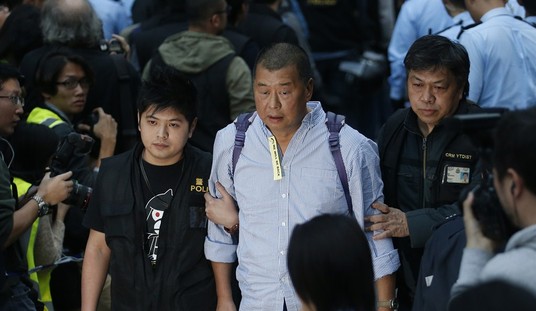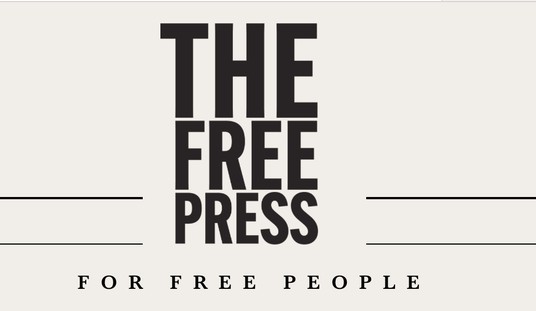Yesterday, Russia and the US announced that a “surprise deal” had been reached to defuse the crisis in Ukraine. The deal involved an effort by the government in Kyiv to work on expanding autonomy in the restive eastern provinces in exchange for the return of government buildings held by “pro-Russian separatists,” and the pullback of Russian forces from the border. John Kerry insisted that Russia would either meet its obligations under the agreement or pay a penalty:
Barack Obama heralded the deal at a press conference yesterday:
The potential diplomatic breakthrough, which the Russian foreign minister referred to as “a compromise, of sorts,” came after nearly seven hours of negotiations with Secretary of State John F. Kerry, the Ukrainian foreign minister and the European Union’s foreign policy chief.
Under the agreement, all parties, including separatists and their Russian backers, would stop violent and provocative acts, and all illegal groups would be disarmed. A joint statement made no mention of the presence of what the United States has said are 40,000 Russian troops massed on Ukraine’s eastern and southern borders. But Kerry said it made clear that Russia is “absolutely prepared to begin to respond with respect to troops,” provided the terms of the agreement are observed.
In Washington, President Obama said Russia’s stated commitments were only the beginning of a process.
“My hope is that we actually do see follow-through over the next several days, but I don’t think, given past performance, that we can count on that,” Obama said during a White House press conference. “We have to be prepared to potentially respond to what continue to be, you know, efforts of interference by the Russians in eastern and southern Ukraine.”
The Associated Press sounded a bit skeptical:
For that matter, so did Ukraine’s interim Prime Minister Arseniy Yatsenyuk. He told ITV that the Russians had already invaded eastern Ukraine, and that he doubted this agreement would push them back across the border:
So far, Yatsenyuk has been proven correct:
Pro-Russian insurgents in Ukraine’s east who have been occupying government buildings in more than 10 cities said Friday they will only leave them if the interim government in Kiev resigns.
Denis Pushilin, a spokesman of the self-appointed Donetsk People’s Republic, told reporters the insurgents do not recognize the Ukrainian government as legitimate.
Ukraine and Russia, with the United States and European Union taking part in the negotiations, agreed Thursday on tentative steps toward calming tensions along the shared Ukraine-Russia border after more than a month of bloodshed.
But Pushilin, speaking at the insurgent-occupied regional administration’s building in Donetsk, said the deal specifies that all illegally seized buildings should be vacated and in his opinion, the government in Kiev is also occupying public buildings illegally.
“This is a reasonable agreement, but everyone should vacate the buildings, and that includes Yatsenyuk and Turchynov,” he said, referring to the acting Ukrainian prime minister and president.
And that’s Pushilin on a friendly note. CNN reports that he also declared that “Lavrov did not sign anything for us, he signed on behalf of the Russian Federation,” which makes it a little difficult to put much faith in “surprise deals” arranged by Moscow. Few doubt now that Pushilin’s and other such groups are acting on behalf of and probably under the control of Vladimir Putin, but they don’t seem anxious to profess that, and want to use the ambiguity to play both sides against the middle. At least, they’ll do that to the extent that Russia allows it.
The only way to force them to meet their obligations, therefore, is to make Russia pay for their refusal to cooperate. Until the West actually hits Putin hard in the pocketbook, he and his allies in eastern Ukraine will continue to play games and continue to consolidate their power across the border — and potential future targets like Moldova and the Baltic states will get a real sense just how committed the West is to their own security.







Join the conversation as a VIP Member